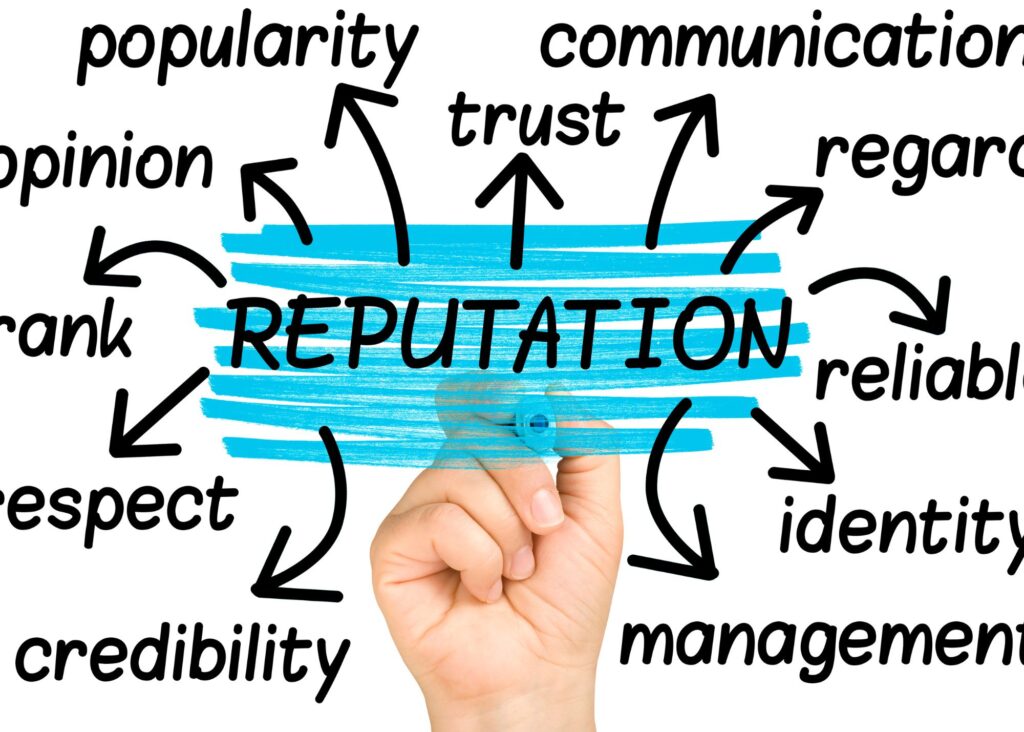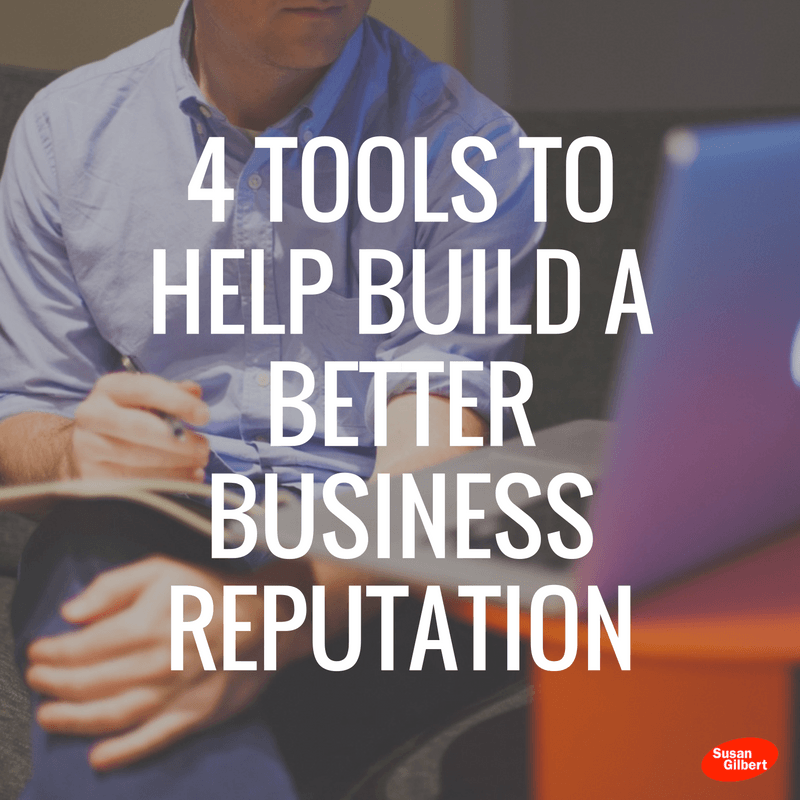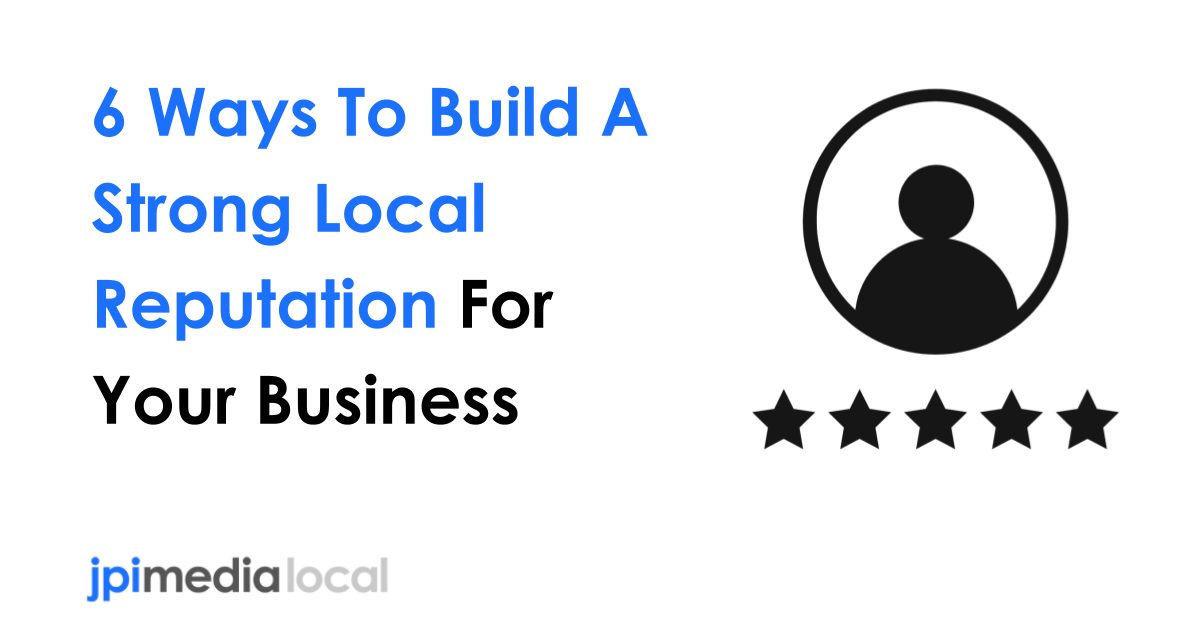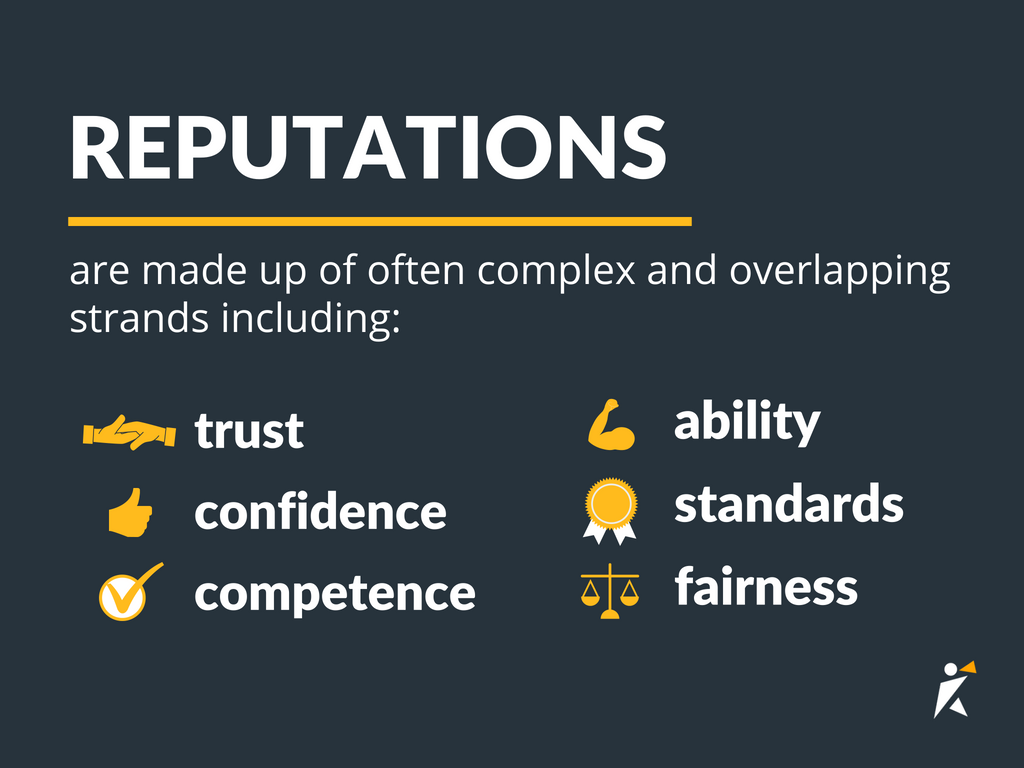How To Build A Good Reputation In Business
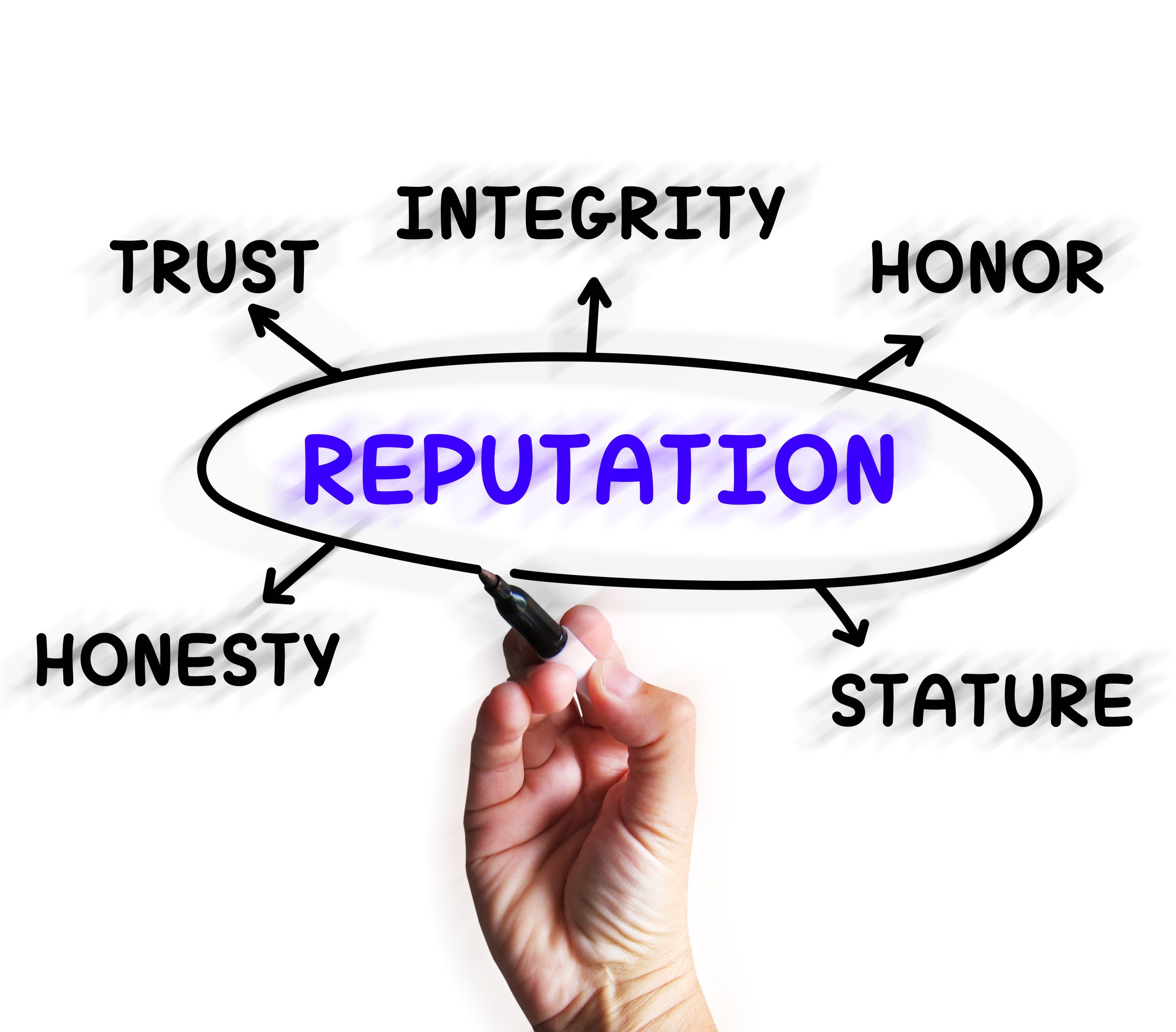
In today's hyper-connected world, a company's reputation is its most valuable asset. Building a positive reputation requires consistent effort and a commitment to ethical practices.
This article outlines the essential steps businesses must take to cultivate and maintain a stellar reputation, crucial for long-term success and customer loyalty.
Foundation: Core Values and Ethical Conduct
Establish a solid foundation by defining clear core values. These values should guide all business decisions and interactions.
Implement a strict code of ethics that promotes integrity and transparency. Ensure all employees are aware of and adhere to these standards.
Customer-Centric Approach
Prioritize customer satisfaction above all else. Respond promptly and effectively to customer inquiries and complaints.
Go the extra mile to exceed customer expectations. Building loyalty is crucial.
Actively solicit and act upon customer feedback to improve products and services. This demonstrates a commitment to customer needs.
Transparency and Communication
Maintain open and honest communication with customers, employees, and stakeholders. Transparency builds trust.
Be upfront about potential issues or challenges. Addressing problems proactively prevents reputational damage.
Utilize social media and other channels to engage with your audience. Share company news, updates, and behind-the-scenes glimpses.
Crisis Management Plan
Develop a comprehensive crisis management plan to address potential reputational threats. This plan should outline clear roles and responsibilities.
Prepare for various scenarios, including negative publicity, product recalls, and data breaches. Quick and decisive action is essential.
Designate a spokesperson to handle media inquiries during a crisis. Consistent messaging is critical to control the narrative.
Community Engagement and Social Responsibility
Demonstrate a commitment to social responsibility by supporting local communities. Participate in charitable initiatives and environmental programs.
According to a 2023 study by Reputation Institute, 70% of consumers are more likely to buy from companies that actively support social causes.
Ethical and sustainable practices contribute positively to the overall perception of your brand. Aim for environmental sustainability.
Employee Relations and Workplace Culture
Cultivate a positive and supportive workplace culture. Treat employees with respect and fairness.
Happy and engaged employees are your best brand ambassadors. Employee advocacy significantly impacts public perception.
Invest in employee training and development to enhance their skills and knowledge. A well-trained workforce delivers better customer service.
Online Reputation Management
Monitor your online reputation regularly. Track mentions of your company on social media, review sites, and news outlets. Actively manage your online presence.
Respond to reviews and comments, both positive and negative. Addressing concerns promptly demonstrates your commitment to customer satisfaction.
Encourage satisfied customers to leave positive reviews. Positive reviews increase sales, according to a 2024 BrightLocal study.
Consistency and Continuous Improvement
Maintain consistent brand messaging across all platforms. A unified brand identity strengthens recognition and builds trust.
Continuously evaluate your reputation-building efforts and make adjustments as needed. The business landscape is always evolving.
Remember that building a good reputation is an ongoing process. It requires unwavering commitment to ethical practices and customer satisfaction.
Next steps: Implement the strategies outlined in this article to start building a stronger reputation today. Monitor your progress regularly and adapt your approach as needed.
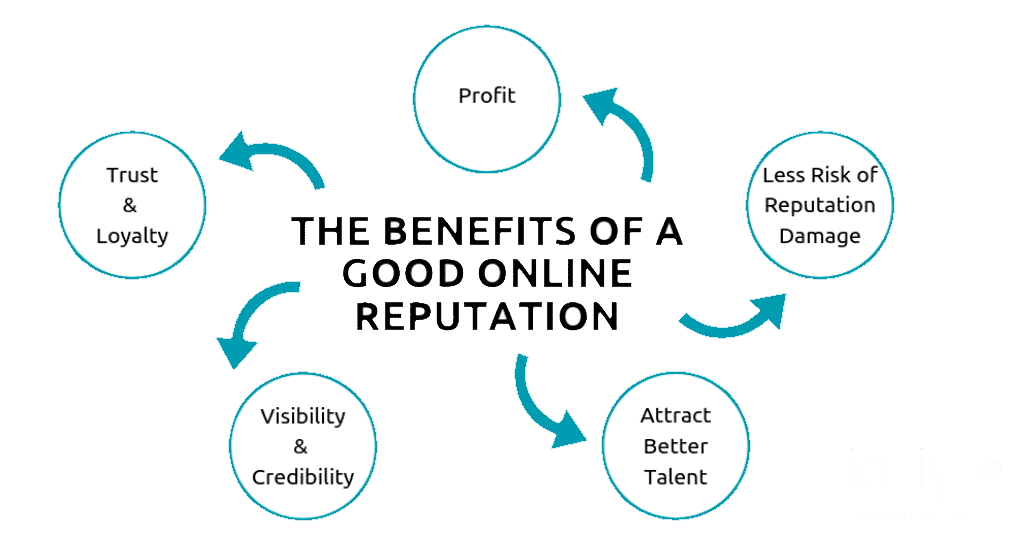
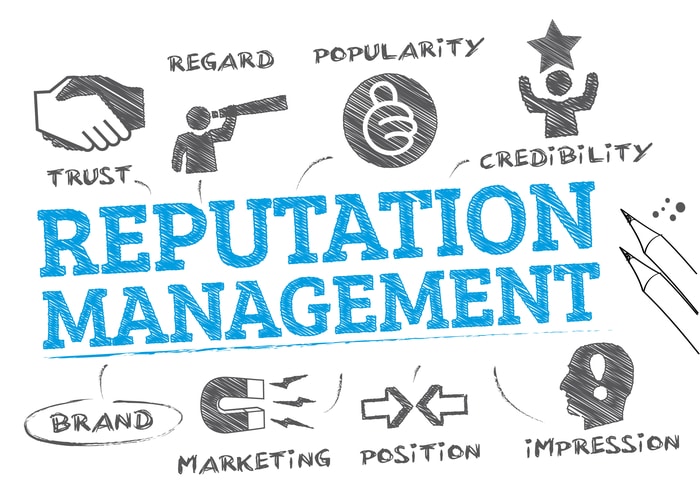
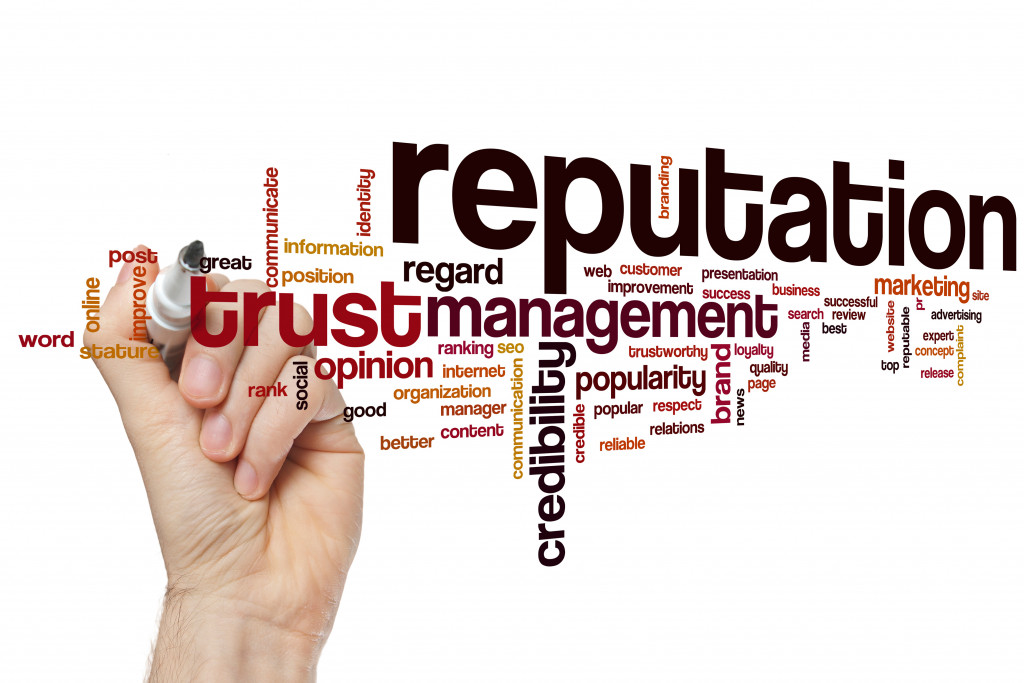


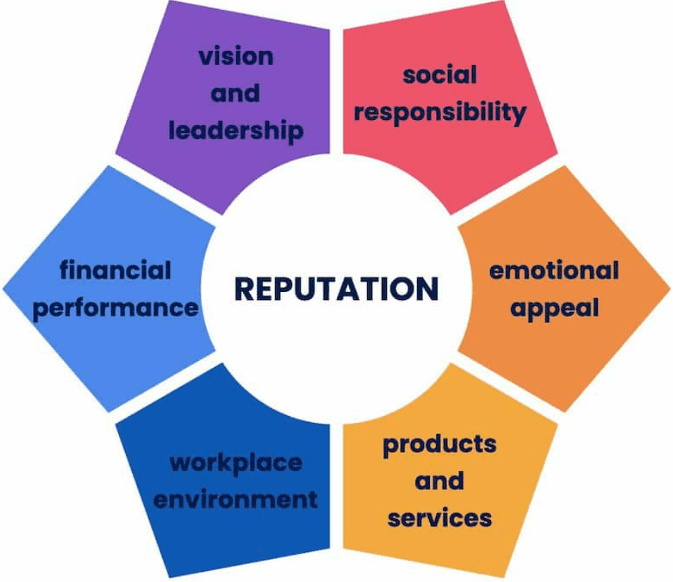
![How To Build A Good Reputation In Business Why Your Company's Reputation Matters [Infographic] | WebFX](https://www.webfx.com/wp-content/uploads/2021/10/08-rep-management-how-to-improve.png)
